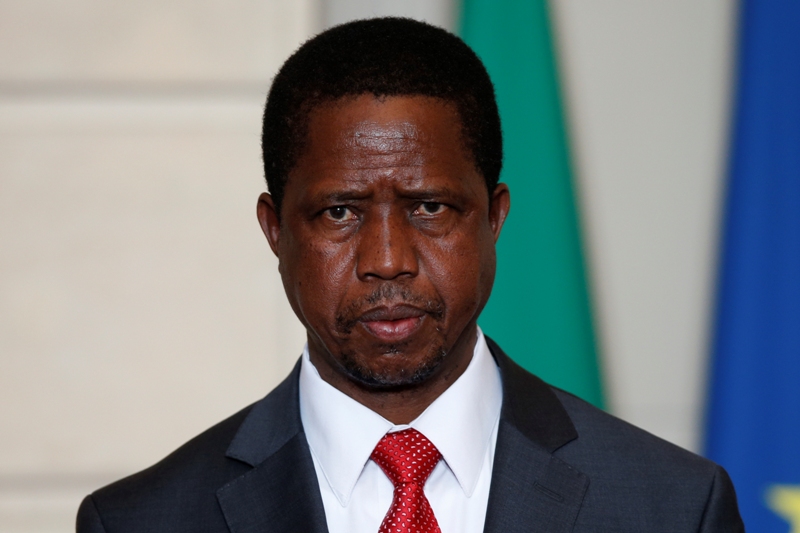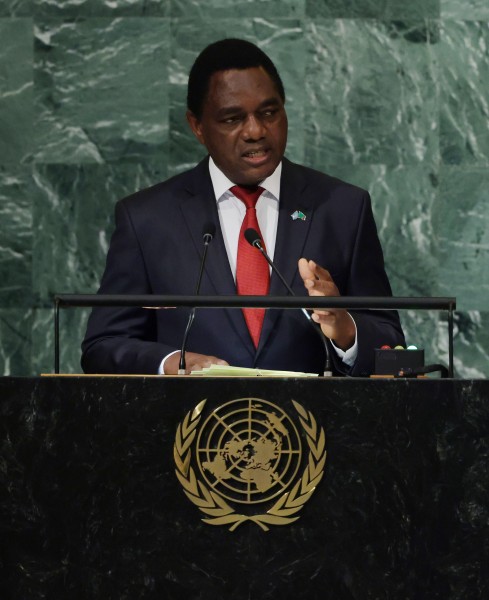The International Press Institute (IPI) today condemned Zambian authorities’ seizure of The Post newspaper, shutting down one of the only media outlets giving balanced political coverage just 51 days before voters go to the polls to elect the country’s president and General Assembly.
Officers of the Zambia Revenue Authority (ZRA) raided The Post’s offices and printing press late yesterday afternoon over allegedly unpaid tax debts, forcing employees to leave, locking the premises and stationing heavily armed police guards outside.
ZRA officials had demanded that The Post pay some 68 million kwacha (approx. €5.47 million) immediately, but the newspaper maintains that it had already paid the amount nearly in full. According to The Post, a ZRA officer said that the agency had not yet accessed funds paid by The Post and therefore could not withdraw a warrant against the newspaper.
The legality of that warrant is unclear, however, as The Post previously obtained a court order prohibiting the ZRA from collecting disputed tax obligations until a court rules on the matter.
“We condemn the seizure of The Post, which is all the more disturbing given its proximity to the upcoming election,” IPI Director of Advocacy and Communications Steven M. Ellis said. “The misuse of state authority to silence the only major media outlet giving opposition parties a platform can only be seen as an effort to deny voters the information they need to make an informed decision about their future and an assault on democracy. We urge the government to reverse this decision and to allow The Post and all media outlets in Zambia to report the news freely and without pressure.”
Zambians are scheduled to vote on Aug. 11 in an election that will include a referendum on constitutional changes. But critics say that the ruling Patriotic Front (PF) party, led by President Edgar Lungu, has actively worked to deny media coverage to the opposition, despite that fact that most of the country’s media outlets are taxpayer funded. They note that national broadcaster ZNBC has refused to cover any opposition election campaigns or show any opposition advertisements that criticise of the PF government.
The opposition United Party for National Development (UPND) noted in a statement yesterday blasting the closure of The Post that “While the last truly independent voice among our print media – The Post – has been hounded over the past 18 months and now closed on account of its tax obligations, the outstanding ZRA and statutory debts of the various pro-government media outlets such as ZNBC, Daily Mail and Times of Zambia continue to go ignored.”
Earlier this month, excerpts from a leaked document were published purporting to outline a PF strategy to rig election results and brutalise the opposition. Among other efforts, the document indicated that “No form of media should be given to the UPND in the form of news or campaign advertisements” and that a “massive media character assassination” campaign should be launched against UPND presidential candidate Hakainde Hichilema. The document also said that “prime efforts” would be made to eliminate coverage by The Post.
Yesterday’s seizure was the latest in a series of incidents in the last year which the PF government has increased pressure on The Post. In April, two Post journalists were criminally charged with defaming Lungu after they reported an opposition politician’s allegation that Lungu used taxpayer money to vacation at a holiday resort.
In November of last year, the ZRA raided The Post over disputed tax obligations, leading a court to issue an injunction against their immediate collection while The Post appealed. That followed an incident in which a bullet penetrated the paper’s newsroom.
Authorities last July also brought criminal charges against Post Editor-in-Chief and IPI World Press Freedom hero Fred M’membe for allegedly disclosing classified information in an investigative piece about corruption in the PF.
In an interview with IPI, M’membe said that Lungu “doesn’t want [Zambia’s] problems to be highlighted, analysed and discussed”, adding: “We are providing a platform for the Zambian people to discuss these issues. And to him, the discussion of these issues, the analysing of these issues, threatens his hold on power.”



